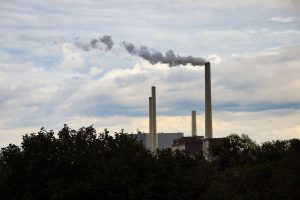THE Department of Energy (DoE) has identified the activities that will be deemed eligible for carbon credits, like the early retirement of coal-fired power plants.
In a circular dated Sept. 23, the DoE said the eligible “mitigation” activities that can significantly reduce greenhouse gas (GHG) emissions also include the development of renewable energy projects; energy efficiency improvements; adopting low-carbon energy technologies; fuel switching and co-firing in power generation; switching to electric vehicles; and biofuels blending.
Proponents of such projects will be allowed to issue carbon credit certificates (CCCs), it said.
The Philippines is a signatory to the Paris Agreement, a global treaty seeking to hold the increase in the global average temperature to well below 2°C above pre-industrial levels, and limit the increase to 1.5°C.
The Philippines has committed to reduce its GHG emissions by 75% by 2030, as outlined in its Nationally Determined Contribution (NDC) climate action plan. It plans to reduce or eliminate emissions in five areas: agriculture, waste, industry, transport, and energy.
Article 6 of the Paris Agreement recognizes the issuance and transfer of CCCs as a means of incentivizing activities that reduce GHGs.
A CCC is a tradeable certificate representing one ton of carbon dioxide equivalent of GHG emissions reduced, avoided, or removed from the atmosphere.
Participants can trade CCCs on the Philippine market, in countries covered by bilateral or multilateral agreements, and on the voluntary carbon market.
The DoE is tasked with overseeing the energy industry’s NDC. Meanwhile, the Department of Environment and Natural Resources will serve as the designated national authority (DNA) of the Philippines tasked with soliciting international cooperation with regard to carbon markets.
Upon the issuance of the general framework for the implementation of the Paris Agreement by the DNA, the DoE will review and amend the circular.
In August, Energy Undersecretary Felix William B. Fuentebella said the carbon credit policy is a “game-changer” for the Philippine energy industry.
“It will equip our energy sector with the tools to generate and manage carbon credits with integrity, ensuring every ton of reduced carbon dioxide is real and verifiable. This builds trust and unlocks investment in effective climate solutions,” he said. — Sheldeen Joy Talavera

